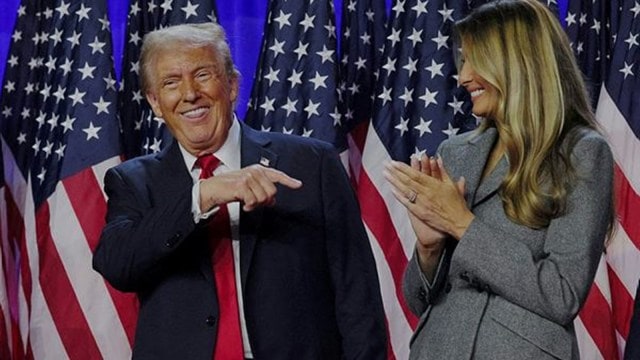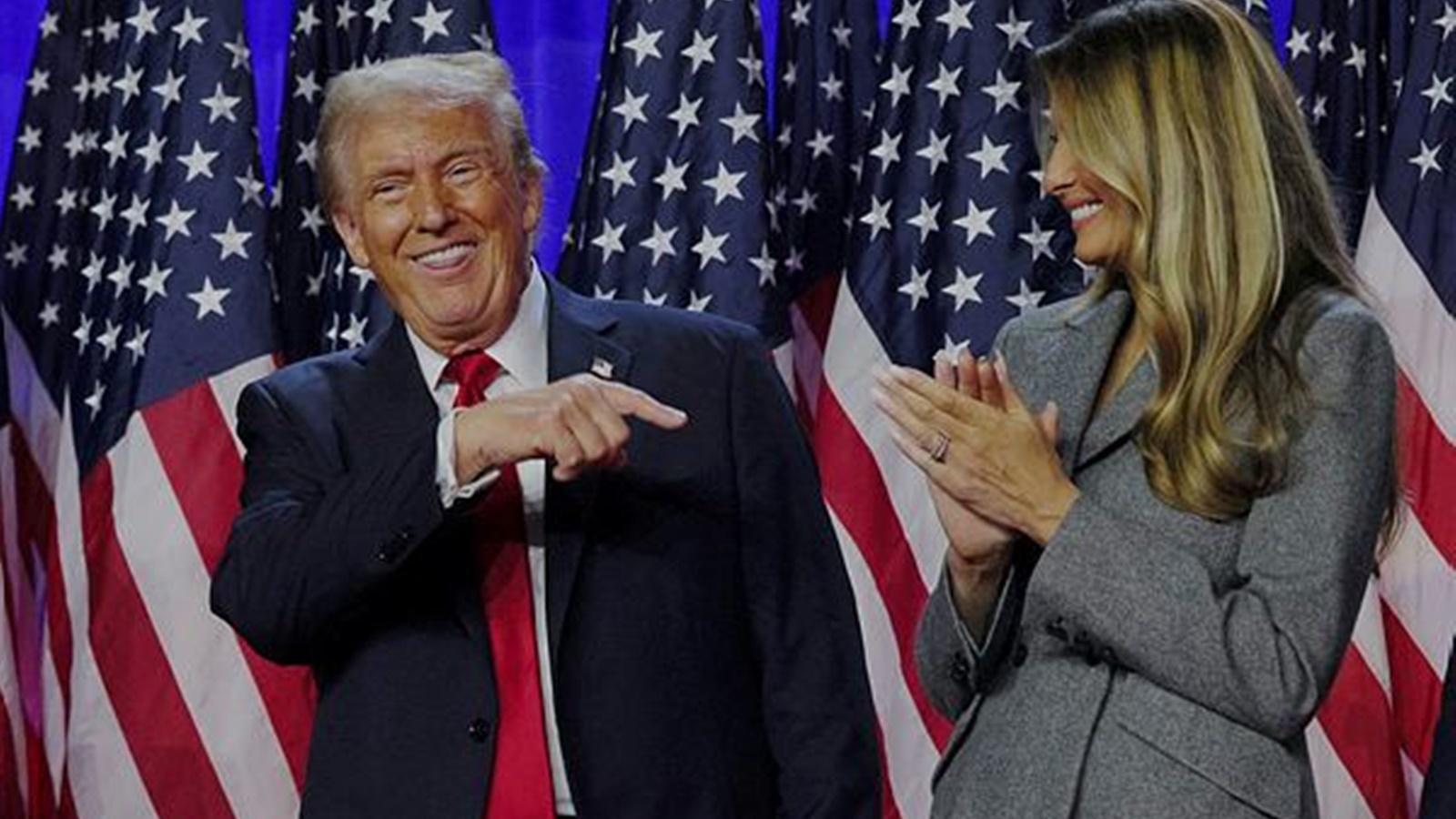
The American electorate has, decisively, chosen to trust their destiny in the hands of Donald Trump. From being written off after January 6, 2020, Trump now owns, not just the Republican Party, but the United States of America. The USA is now Trump country. He has won one of the broadest racial social coalitions for the Republicans; the shift in Hispanic votes, for example, is quite remarkable. Prima facie, Trump had so many disadvantages: Allegedly, the baggage of January 6, indictments and age. He had prominent businessmen like Elon Musk on his side, but he was outspent by the Democrats. So this is not a win that can be put down to oligarchic manipulation.
Three meta-narratives hurt the Democrats. It is a fact that American foreign policy was seen to fail on Joe Biden’s watch: The world is now on the brink of two globally interconnected wars. In both those wars, America did not achieve any objective in its national interest. The war in the Middle East was a double blow to the Democrats. On the one hand, they were tainted with supporting genocide that stripped away whatever sliver of moral high ground they might want to occupy on other issues: What is the ominous threat of the mass deportation Trump promised in comparison to abetting a horrific war that has left forty thousand dead? Benjamin Netanyahu made the Biden administration look both complicit and weak. Domestically, the war produced a sense of disenchantment in both parties: Those who are pro-Israel and those who fear anti-Semitism recoiled at the prospect of street protests; Arab-American recoiled at the complicity in the war. Trump’s claim is not that he is anti-war, but that the wars would not have happened in the first place. This is not an anti-war vote. But the war became a sign of the Democrats’ utter lack of credibility.
The second meta-narrative was the danger to democracy that Trump posed. But there are three ways the credibility of this argument is blunted. The first is that it is seen as simply an argument for the status quo, a defence of an old elite. Second, this risk is not measured by figures like Hitler: Totalitarian or completely fascist. In the contemporary world, it is measured more by figures like Orban; or, if one is yearning for historical analogies, right-wing figures like Bismarck and Napoleon who combined personal power with a populist working-class base. People might conclude this might be a more liveable risk. But a more important factor is the credibility of liberal institutions. Trump may be seen as a liar, but there is also a sense that liberal truth-seeking institutions like the media, academia, even scientific communities are tainted, no longer serving truth, weak-kneed in defence of free speech, and in their own way hostage to small elites and oligarchies. What are individual lies, Trump might intone, when big lies are being told about war, Covid and history? Whether liberal ideas have lost or the credibility of liberals is the question of our time.
This is a year in democracy globally, where incumbent governments, from Poland to the United Kingdom to India, have done less well. It suggests that across the world governments are struggling to convince their voters that they have an economic framework that can both make the economy less of a zero-sum game and produce a measure of psychological security. On paper, an incumbent Democratic government should have been doing much better, with both unemployment and inflation at historic lows, and the pivot to industrial policy yielding dividends, ironically in Republican districts. But how voters process a sense of economic well-being is not captured by headline numbers. Eight per cent inflation in 2022, even if transitory, and a brief but sharp rise in prices of a couple of commodities seem to have scarred the memory of an otherwise good economy. Voters are better inflation targeters than central banks. But the remarkable thing is the extraordinary cash handouts in the aftermath of Covid seem to have paid no dividends at all, and anxiety about the future overshadowed current possibilities. It is very clear that the United States is struggling to come up with a social contract that can reconcile the interests of college graduates with those of the working class. And given that this education divide also comes with a form of cultural divide, this faultline remains deep. Perhaps, economic volatility will continue to produce the conditions for more political churn.
Trump’s instinct that immigration was the overriding issue turned out to be correct. The procedural claim that he had blocked a bipartisan agreement on immigration reform was simply dwarfed by the spectacular failures of Democratic immigration policy, particularly in 2022. The idea that the Democratic immigration policy was a policy in bad faith, whose costs were being borne by working-class citizens is widespread. San Francisco and New York, two bastions of liberalism, became symbolic poster children of liberal misgovernance.
And finally, we learnt that crude identity politics is always confounded by politics. Yes, there was a gender gap in voting and at least a hint of misogyny cannot be ruled out as a factor in Kamala Harris’s defeat. But abortion did not turn out to be as deep a dividing issue as expected. A majority of men and not enough women seem to care for it, their concerns blunted by the fact that it has become a state-level issue. Curiously, the slow dismantling of what used to be considered the third rail of American politics, affirmative action, barely provoked a backlash. On transgender issues, people seem to be willing to tolerate new constructions of gender and self-definition, but recoil at the prospect of converting those into an ideology which radically shifts the norms of society in general. Race and ethnicity also do not quite work on predictable lines.
Trump as the 47th President is in a stronger position than Trump as the 45th. He has a more powerful popular mandate. He is better prepared and controls all three branches of government. The stage is set for massive disruption: Economic deregulation, (some wise, some perilous) tax cuts, higher tariffs, beggar-thy-neighbour trade policies. How much dynamism this produces remains to be seen. With institutions, America is now in unchartered territory. But significant checks and balances are likely to erode. Significant sections of the population, especially undocumented aliens, will live in fear. The coarsening of public discourse and deepening of social polarisation will continue. On foreign policy, the range of possible outcomes is admittedly wide. But it would be foolish to bet on a world more peaceful and predictable. America has chosen a great disruption. Now brace yourselves for the ride.
The writer is contributing editor, The Indian Express
© The Indian Express Pvt Ltd
First uploaded on: 06-11-2024 at 15:36 IST



